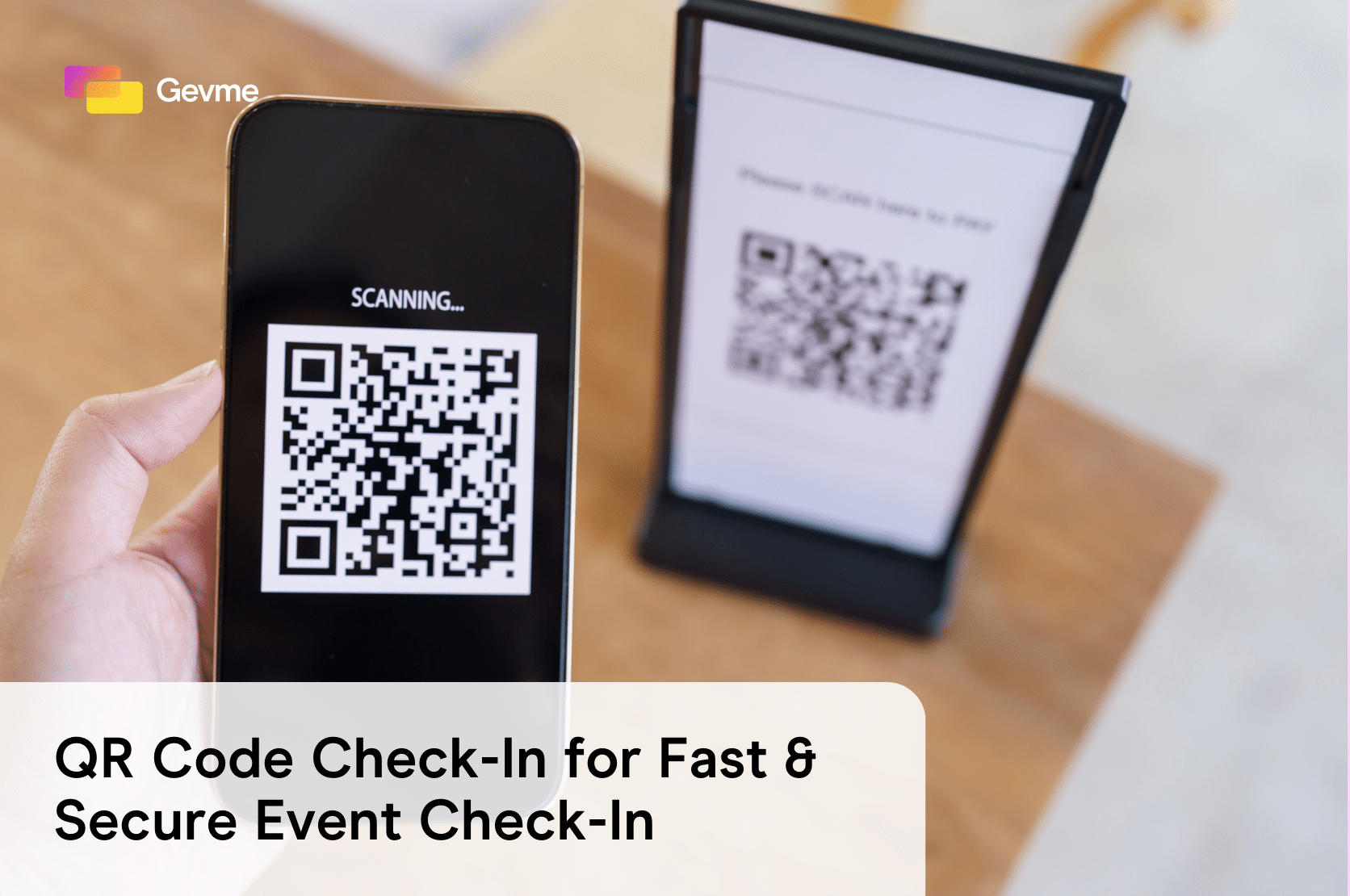In lieu of anything clever or witty for an opening line, how about I give you some music instead?
Whether it be a passport to some place or, as in that Beatles’ classic, a metaphor for something else, tickets play an incredibly important part of our every day lives, even if we don’t always notice them.
As an event organizer in the 21st century, it is remarkable to note just how many options you have when it comes to ticketing and you’ll be pleased to know that Gevme provides many solutions to your problems in that regard. I will show you how in just a bit, but before that, let’s look at different ticketing types and the advantages and disadvantages those mediums have.
Good Ol’, Good Ol’
It’s a good idea to begin at the beginning and think about tickets in their most traditional form. Regardless of variations in design or material, I would define this as a physical object that has unique characteristics and therefore usable as proof for entry to an event.
Yay:
Despite the technological possibilities on offer in the year 2016 (where I am writing. If you’re reading this in the far off future – hello!) physical objects are still prevalent and in some studies even thriving when compared to their electronic versions. You see, humans are extremely tactile creatures and the need to hold something or, for that matter, keep something, cannot be underestimated. A physical ticket is an immediate memento and I’m sure many of us have kept movie ticket stubs for many a sentimental reason or asked a rock or sports star to autograph an entry pass. Having a physical ticket allows your attendees to keep a piece of your event with them if they so wish to cherish that. Also, having a physical ticket can be thrilling in the build up to an eagerly anticipated event. This generates anticipation and goers posting photos of their tickets on social media platforms is free publicity for your event.
Yeah, but… :
In a more environmentally conscious world, the obvious downside would be the wastage of paper or other materials that necessarily comes with physical ticketing. Alternative ticketing options solve this to a certain extent.
Furthermore, having to get tickets designed, then printed, then stored, then distributed are all hassles you could quite conceivably do without. At your event itself, you’ll still have to think of a way to punch tickets and to dispose of the ensuing trash. Again, this could easily be something that could be done away with.
E-Tickets
And so we move on to electronic ticketing and this would certainly be the trend that I believe industries will eventually move towards. I won’t disrespect our intelligence and say things that are the obvious opposite of what has already been written, but let’s look at how this can be both a good and bad thing.

Yay:
It is so easy for customers. With a credit card, you can buy a ticket from anywhere in the world and not have to worry afterward about misplacing it. By being so easy, you have a higher chance into tapping into a potential customer’s impulse.
It is also easier for you and for this you can use GEVME’s online ticketing services. This allows you to customize your needs with price discrimination and categorization, and also allows you handle tax or other add-ons all on a single platform. Furthermore, by using online platforms such as Gevme, you are able to track the identity of your clientale and also have a database of their records. This allows you to be able to communicate directly with them if need be, reconfigure your marketing strategies for different audiences, and also have specifically targeted ads or promotions direct to the individual based on their histories and therefore likely tastes and interests.
Yeah, but… :
The thing about the internet is that we like to believe it is this egalitarian entity that levels the playing field and allows everyone a fair shot. In reality though, huge numbers of people around the world don’t even have internet access. And even within our e-literate (see what I did there) social circles, there are people who are simply uncomfortable with the latest technologies. The point I’m driving at is that these methods of ticketing can be exclusive and exclusionary especially if your target demographic drifts far away from that whom we label millenials.
Also, technology is reliant on complementary technology to work. I was at a show where the ability to read the e-tickets was compromised by a technical problem and this caused a massive jam at the gates and meant that a large number of the audience missed parts of the show. Technology is great but when it doesn’t work it can be a real bother.
Go Empty

Which leaves me with the last possible option, and that is to not have tickets at all. You might say that I’m just playing with definitions, but essentially the point stands. Find new and innovative ways of admitting patrons without the traditional trappings of “tickets”.
Yay:
With ideas such as identity confirmation (through driving licenses or passports) or even secret passwords, you can let your guests feel special and part of an exclusive club. It adds an elan and a sense of being interesting and fresh to your company which could help with your public image.
Yeah, but:
Obviously crowd control and exclusivity might be a problem since passwords or items can be transferred. But hey, it is up to you to come up with fresh ideas!
That’s It
Ticketing in today’s world can take many different forms and each of them has its strengths and weaknesses. Make your choice based on who your audience is, what your event is and how best to facilitate entry. Hopefully, this article (and Gevme of course) can help you make the best decisions for your events.








